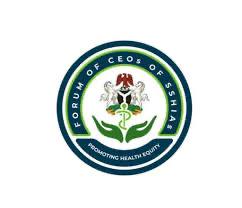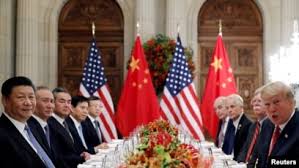The Africa Centres for Disease Control and Prevention (Africa CDC) has sounded the alarm over drastic cuts in US and European development aid, warning that millions of lives across the continent are at risk.
Speaking on Thursday, Africa CDC Director-General, Dr. Jean Kaseya, described the situation as a “total disaster” for Africa’s health sector.
Kaseya cautioned that with the US Congress set to debate the reauthorization of the President’s Emergency Plan for AIDS Relief (PEPFAR) on March 25, the fate of millions remains uncertain.
He revealed that 30 percent of Africa’s health expenditure depends on Official Development Assistance (ODA), but in 2025, funding has been slashed by 70 percent, plummeting from $81 billion to just $25 billion.
“Beyond HIV/AIDS, the funding crisis comes at a time when disease outbreaks in Africa have surged by 41 percent over the past two years,” Kaseya said.
“In the Democratic Republic of Congo, the loss of USAID funding has disrupted Mpox testing, leading to a 16 percent drop in confirmed cases—not because the outbreak is under control, but due to a lack of resources to track it.
“Turnaround times for testing have also increased in many regions due to logistical challenges,” he added.
Kaseya warned that these cuts could undo two decades of progress in maternal and child health, infectious disease control, and poverty reduction.
With donor funding disappearing, he said, entire health systems could collapse, pushing millions more into extreme poverty.
“Africa CDC projects that 39 million people will be driven into poverty as a direct result of these funding cuts,” he stated.
Health financing remains a major challenge, he noted, with only Botswana and Rwanda meeting the Abuja Declaration’s commitment to allocate 15 percent of GDP to healthcare. Only 16 African nations have national health financing plans in place, leaving many countries struggling to sustain their healthcare systems without external support.
As Washington debates the future of PEPFAR, African leaders are searching for alternatives. Kaseya said he has been engaging ministers and the African Union to push for increased domestic investment in healthcare. He is also exploring “blended financing” models, including private sector involvement.
“One innovative proposal involves leveraging the $95 billion in annual remittances from the African diaspora, potentially through a taxation model to fund healthcare initiatives,” he said.
“With limited time to act, I will be meeting with members of the Trump administration, PEPFAR officials, and US lawmakers to advocate for continued aid,” Kaseya added.
According to the reports, The former US President Donald Trump issued an executive order in January, enforcing a 90-day pause on all foreign assistance.
The World Health Organization (WHO) has warned that this decision has “substantially disrupted” the supply of HIV treatments in eight countries, including Haiti, Kenya, Lesotho, South Sudan, Burkina Faso, Mali, Nigeria, and Ukraine. Without intervention, these nations could soon face shortages of life-saving medicines.
The WHO emphasized that the US has a responsibility to ensure that any withdrawal of funding is handled in an “orderly and humane” manner, allowing affected countries time to secure alternative resources.
The impact of the funding crisis is already being felt beyond Africa. The WHO reported that 80 percent of its essential health services in Afghanistan are at risk of shutting down due to financial constraints.
As of March 4, 167 health facilities in Afghanistan had already closed, and without urgent intervention, over 220 more could shut their doors by June.







